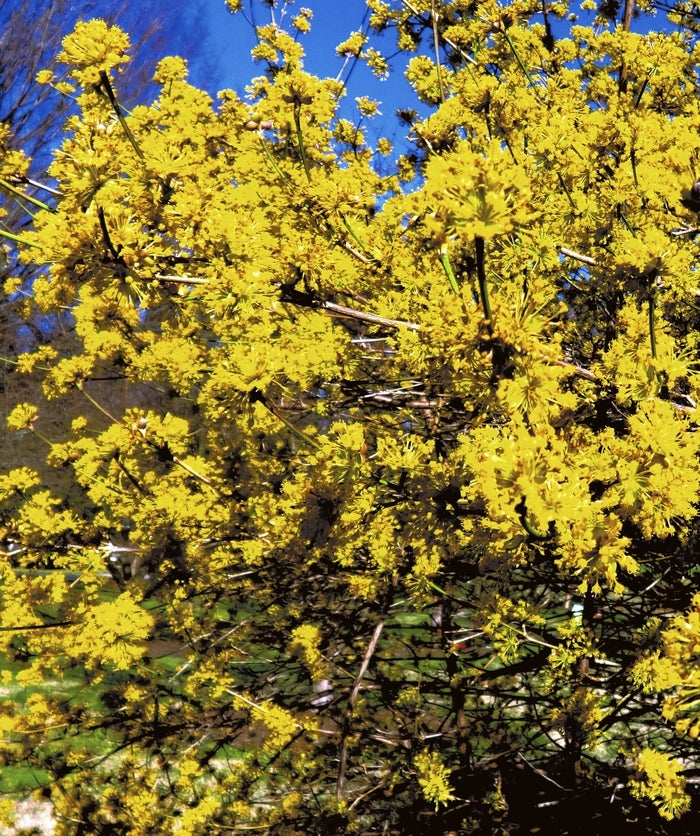Spring forward: Questions about blooms, bulbs and manure as weather warms
Published 12:00 am Friday, March 20, 2015

- Cooperative Extension Cornelian cherry dogwood (Cornus mas) in bloom at Hurley Park is a burst of color that is not your usual dogwood bloom. Photo by Deirdre Parker-Smith, Salisbury Post.
Unusually warm weather earlier this week had many asking various questions about their lawns and landscapes. Retail garden and farm outlets are very busy with customers anticipating the chance to plant vegetable transplants and maintain their landscapes. Many have questions about their gardening chores. Below are a few inquiries may relate to your situation.
Question: I was driving past Hurley Park in Salisbury earlier this week and there was an unusual tree blooming with yellow blooms. Can you tell me what kind of tree it may be?
Answer: The tree in full bloom is a Cornelian cherry dogwood (Cornus mas). The small tree has flaking bark and it’s easy to transplant with no serious insect or disease problems. This unusual dogwood is adaptable to our area as a large shrub or a small tree. Go to http://plants.ces.ncsu.edu/plants/all/cornus-mas/ for more detailed information .
Question: I bought some daffodils planted in black plastic pots earlier last week. The bulbs are about to bloom and I want to plant them in my landscape. How do I plant them if they are in these pots?
Answer: Dig your planting hole the exact size as the hole and carefully lift out the soil and bulbs, if possible keeping them intact. Plant the bulbs in the soil at the level as planted in the pots. Mulch the bulb planting with a couple inches of loose bark mulch. As they grow and bloom, cut off the fading blooms, but leave the foliage to continue to grow until the foliage begins to fade and dies back later in the early summer. It’s important to keep the foliage so the bulb will produce flowers for next the next season. The bulbs should re-flower next season if they are adapted to grow in our climate, zone 7.
Question: I have a friend that has some horses and he told me I could use the manure in my vegetable garden. How should it be used?
Answer: Horse manure and other animal manures need to be well composted to prevent potential problems with salmonella. Aged manures should be plowed into the soil before planting. Manures add organic matter and help workability of the soil. Avoid using fresh manure especially as vegetable crops near maturity. Also, be aware that un-composted manures contain a plethora of weed seeds. When using animal manures, be sure it’s well composted or you’ll add a new crop of weeds to your garden. Go to http://content.ces.ncsu.edu/composting-a-guide-to-managing-organic-yard-wastes.pdf for more detailed information about composting in North Carolina.
Darrell Blackwelder is the County Extension Director with horticulture responsibilities with the North Carolina Cooperative Extension Service in Rowan County.




